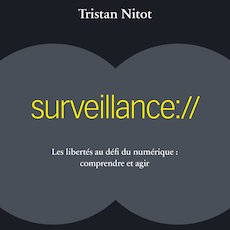Principle Number 6:
The effectiveness of the Internet as a public resource depends upon interoperability (protocols, data formats, content), innovation and decentralized participation worldwide.
As a Standardista myself, this principle is one of the most important. The Web is what is is – a global public resource – thanks to interoperability. Too many of us take this for granted, but it's not, actually. As the Web grows, it becomes more an more tempting for large organizations to own a part of it. To fully understand the importance of interoperability, are are two anecdotes:
- I remember how hard it was for me to share documents with friends, before connectivity became mainstream. I had a Mac (yes, already), and sharing a document mixing text and images was a total pain! Floppy disks used different formats on Mac and PCs, different character sets (I needed accents for my French docs), and different file formats. Now with Wikis, blogs, email, sharing is much easier than before. I can share my pictures with millions of people in a minute.
- Two parts of the Internet which are not interoperable are Instant Messaging and VOIP. If you want to send instant messages to friends, you have to make sure that they use the same system as yours. If not, then you'll have to subscribe to the same network as theirs, install a specific piece of software (which may or may not be available for your OS of choice). Things are pretty much the same with VOIP. You have to choose your network and tools (Skype, Wengo, Gizmo...) to match the choices of your friends. Could we imagine something similar with traditional phones? Would the phone industry had reached such a broad audience if people had to subscribe to different phone operators, own a different phone for each company, and make sure to use the right one for reaching specific people? No.
As we can see, Interoperability is key if we want the Internet to reach its full potential[1]. But for this, we need to understand that corporate interests may think differently: to maximize their own profits (by making a part of the Internet proprietary), they may make choices that would reduce the overall value of the Internet.
Let's now revisit the end of principle number 6:
The effectiveness of the Internet as a public resource depends upon (...) decentralized participation worldwide.
This is another very interesting feature of the Internet, and one that helps making it a public resource: there is no central point of entry. You don't have to ask authorization to any specific organization to "set up shop" (or any other of kind of site). You just need connectivity, an IP address, an inexpensive server and a domain name – all of these are available in virtually unlimited supplies – and there you go! You can invent, innovate, experiment, share, publish, leverage existing resources, provided that you respect existing standards. Restriction may applies, but it's very unlikely that some so-called authority will shut down your servers (this may be a reason why there are so many scams on the Internet, by the way).
Since I'll be away, comments are closed on my blog. But readers and Mozilla contributors are invited to discuss the Mozilla Manifesto on the Mozilla.Governance mailing list / newsgroup.
Notes
[1] I'm using W3C's tag line here on purpose.





